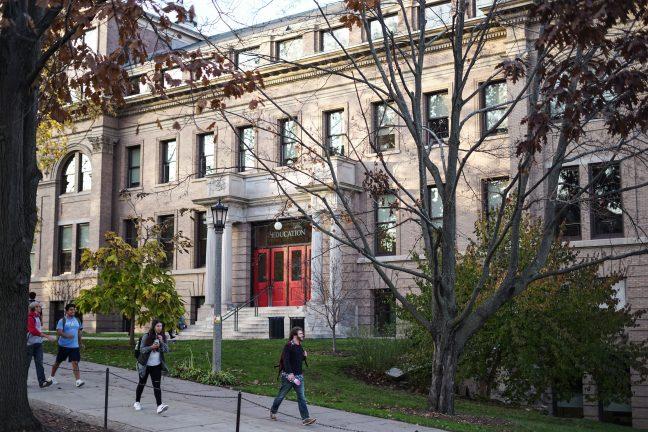Wisconsin Gov. Tony Evers delivered his 2024 State of the State Address Tuesday, emphasizing challenges of workforce shortages and declaring 2024 “Year of the Worker,” according to a press release from the Office of the Governor.
Evers also raised the issue of investment in public education and announced the beginning of a teacher apprenticeship pilot program with the Department of Public Instruction, according to the press release.
“We also know we must work to retain and recruit talented educators who work every day to do what’s best for our kids,” Evers said at the address.
Wisconsin Department of Public Instruction Communications Director Abigail Swetz emphasized this goal in an interview with The Badger Herald, pointing out that the state has a funding surplus that could be used for funding K-12 schools to propel students towards brighter futures.
Evers said only 67% of educators work in the field for longer than five years, prompting the collaborative effort between the Wisconsin Department of Workforce Development and DPI.
“It’s going to take a bipartisan effort to get it [strengthening Wisconsin’s teacher workforce] done,” Swetz said. “But when it comes down to it, we have to do what’s best for our kids, and the effort is worth it.”
The program will allow educators preparing to work in Wisconsin elementary and middle schools to utilize the Wisconsin Apprenticeship “learn-while-you-earn” framework, according to the program’s website. In three and a half years, participants will spend 3,000 hours working in a classroom setting and will finish with an associate degree from the Wisconsin Technical College System and a bachelor’s degree from Lakeland University.
Board of Regents terminates UW–La Crosse chancellor for ‘abhorrent’ conduct, UW president says
Swetz said the program will remove the cost barrier of getting a teaching degree, because future teachers will be paid to participate in the program. This will in turn hopefully diversify the teacher population by making it more accessible, Swetz said.
The program will also offer mentorship, which will be a support network meant to carry teachers through their entire careers, also promoting retention, Swetz said.
“Wisconsin is facing a teacher shortage,” Swetz said. “It’s increasing. It’s a national problem. It’s not new. But we also know it’s been declining since around the time of Act 10.”
Act 10, passed in 2011, cut teacher salaries, limited bargaining rights and caused a decline in teacher union memberships, according to Swetz.
DPI is working to push through these challenges. Much of this work is being done in collaboration with Evers, in an effort to advance education at all levels across the state. Swetz said DPI has been, and is continuing to, work to support high schools, technical colleges and schools, and higher education institutions.
“We must invest in public education at every level, from early childhood to our technical colleges and universities,” Evers said at the address.













